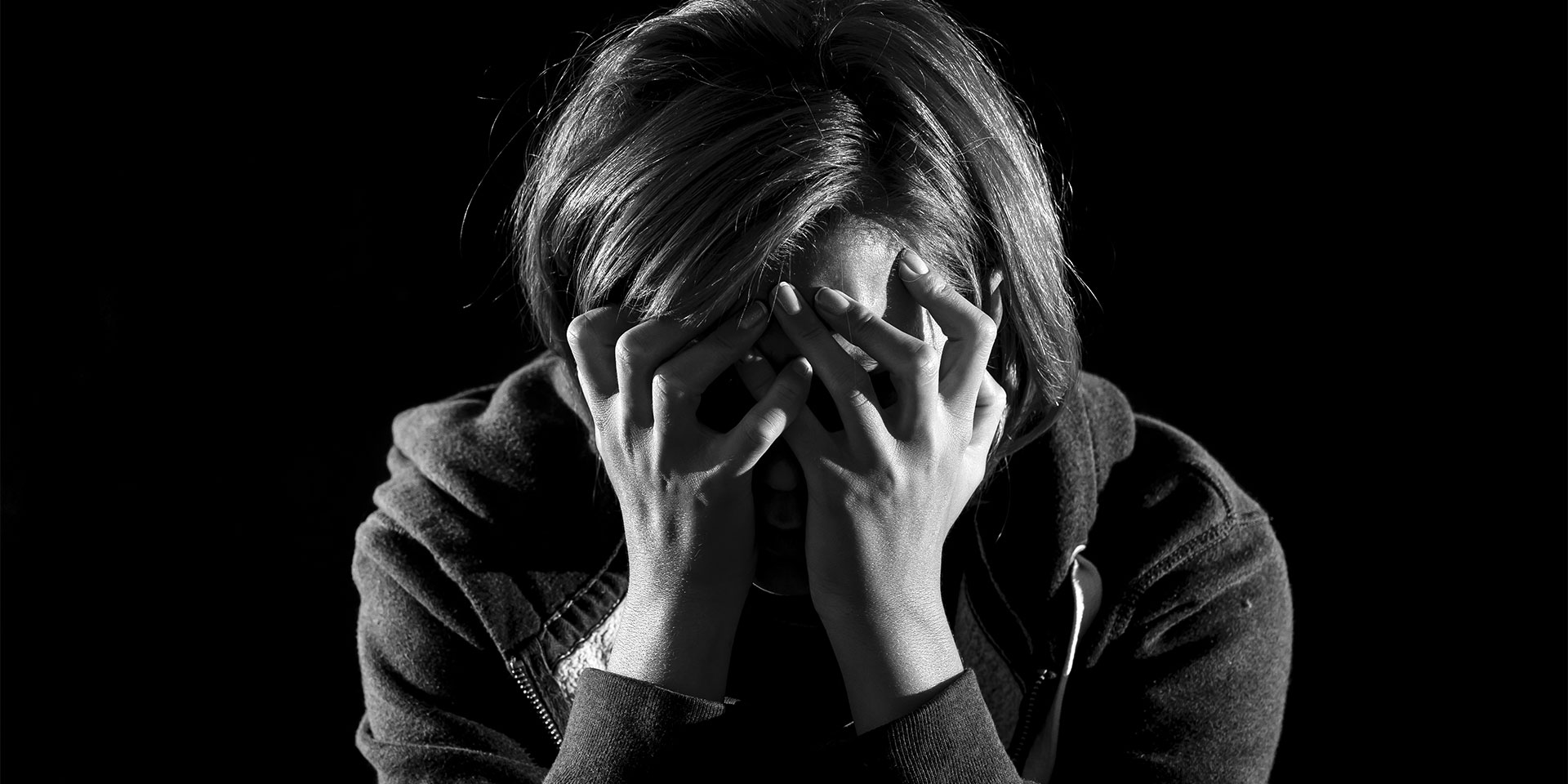At 28, the world was hers. Ellie Finch Hulme was engaged to the man of her dreams, and a lifetime of experience lay before her, like an open field in which one could run freely in any direction. Then came the diagnosis.
Ellie loved to run. So much so that in 2012 she even entered a marathon. During training, however, she noticed some strange bodily reactions. The little finger on her left hand trembled uncontrollably as she ran. Then her left leg failed her right in the middle of the run.
She went to the family doctor and he told her that she could be suffering from “essential tremor,” a movement disorder. The diagnosis, however, was too vague, so Ellie went to a neurologist and, after several tests and scans which started in April, by August it was determined what she had: Parkinson’s disease. She was only 29 years old.
It took her a while to admit that she had Parkinson’s, but Ellie still thought it was easier for her than for her friends and relatives to find out about the relentless diagnosis. She and Tom were planning to get married in March, in the year following the diagnosis. They went ahead with the plan. Not only that, but on her return from honeymoon, Ellie was pregnant. “That was intentional,” she said. “We knew we wanted to have kids and we wanted to do it sooner rather than later. In no way was I prepared to sacrifice that because of this condition.”
Parkinson’s at a young age
Few people with Parkinson’s manage to have children, for several reasons.
One of the reasons would be the age at which people are diagnosed. Although one-third of Parkinson’s patients are diagnosed before the age of 65, only 1 in 20 receive the diagnosis before the age of 45 and only 1 in 100 is diagnosed before the age of 40, says Prof. Huw Morris, a consultant neurologist at the Royal Free Hospital and Professor of Clinical Neurology at the University College London, quoted by the BBC.
Moreover, the treatment for Parkinson’s disease is focused on replacing dopamine with levodopa. There are currently no studies certifying the safety of levodopa in pregnancy. This was one of the risks that worried Ellie, even though her doctor significantly reduced her dose during pregnancy.
As if the symptoms of the disease are not enough, the attitude of those around them adds to the challenges that Parkinson’s patients face every day. A survey conducted in the UK by the Parkinson’s Association concluded that out of 2,000 people with the disease, 87% were discriminated against because of it. About 24% were patronized for being “too young” for Parkinson’s, and 22% said that other people thought they were drunk when they noticed the heavy speech and balance disorders.
About 32% of respondents said that the loss of facial expressions was confused with the lack of friendship and no less than 10% of them said that others laughed at them because of the disease. Due to these perceptions, more than half of Parkinson’s patients say they have avoided or given up some social opportunities altogether because they feared how others would react to them. The case of Mark Worsfold, who suffers from Parkinson’s, is an example of discrimination. He was even arrested in Leatherhead, Surrey, on suspicion that his gestures and facial expressions were suspicious, according to the BBC.
Being a mother is a different challenge
In January 2015, Ellie gave birth to a healthy baby boy, whom she and her husband named Charles. Sophie, Charlie’s sister, was born almost two years later. “We were like, ‘Let’s just go for it, because I’m not going to get any better, so therefore it’s probably better to just get through a second pregnancy sooner rather than later.’” Ellie says her life with two young children was probably the same as any other parent’s life. “A lot of things to deal with, like getting my son weaned off his dummy and then starting his potty training. And obviously, having a newborn, it’s a lot to cope with. But it’s a lot for any parent,” she said.
“I’ve tried not to let having Parkinson’s really affect any of what I was doing with the kids when they were little,” said Ellie, although she admits that because of the medication, she could not breastfeed and this affected her a lot. She wanted to be able to breastfeed, but the risk of transmitting unwanted substances to the baby through milk was too great. The bottle was also a challenge, because the tremor prevented her from being able to feed the little ones herself.
As the children grew older, Ellie tried to explain to them what was wrong with their mother’s health. “But they’ve never once said to me, ‘Mummy, why do you shake?’” However, Ellie, who is involved in various volunteer programs, has received this question from others. On one occasion, she was at an association’s headquarters when a recent employee asked her if she was also new. She was shaking when she tried to arrange things, and the colleague assumed she was nervous.
Beyond that, however, Ellie hopes that her future will be as bright as any parent’s: “I hope that my children understand all my decisions and the choice that my husband and I made to have them—and I’m pretty sure they will. I do hope that I won’t be a burden on them, that they won’t see it like that, because one day I’ll probably need to be cared for, and that’s really quite difficult to say, to be honest.”
Ellie says that three things helped her to adapt to a life with the disease: she continued to be very physically active, she got in touch with other young people living with Parkinson’s, and she avoided comparing herself to others to the best of her ability.
The disease progresses differently from person to person, so any comparison would have been useless anyway. However, meeting other young people who have the disease is not just a source of comparison, but especially one of inspiration.
Lessons learned from Parkinson’s
Emma Lawton, another young woman diagnosed with Parkinson’s disease at the age of 29, also counts on this. I wrote about Emma in 2018, delighted with the invention of a device that, based on electrical impulses, managed to interrupt her tremor and allow her to write her name again. Since then, other devices have been invented to help people with Parkinson’s.
For instance, in February 2018, an innovative brain-stimulating system called Vercise was successfully implanted in an 81-year-old Parkinson’s patient at the Loma Linda University Hospital, the first procedure of this kind in Southern California and the fourth in the United States. The surgery was performed by neurologist Khashayar Dashtipour and neurosurgeon Miguel Lopez-Gonzalez.
In 2017, Emma gave a TED talk in which she shared with the audience 10 of the life lessons she had learned because of her illness.
“1. Don’t look for happiness. Ultimately, if you go searching for it, you’re not going to find anything long-term. Happiness comes from within. If you’re happy in yourself and who you are, then you promote happiness to other people and that comes back to you sevenfold.
- It’s okay to not be okay. It’s like that old saying which I love, which is, ‘You can cover a turd in glitter but it will still be a turd, essentially.’ By being honest with people, they know how to treat me, they know what I expect from them, what I do and don’t want help with. And it makes it easy for all of us.
- Be impatient with yourself, not with other people, because that does not lead to happiness on anyone’s time. Be impatient with yourself and don’t settle. I could have very easily hidden in a corner, put my slippers on, sat on a chair, done nothing for the rest of my life, and no one would have judged me for it because it’s a big thing to deal with. But I do more now than I’ve ever done before, and that is because I feel like I have nothing to lose. What’s the worst that could happen? I’ll get Parkinson’s? Done that, you know. It’s alright. Live as if it is the last opportunity you’re going to have to do something. Say “yes” more.
- Remember that everyone is going through something as well. It might be something tiny to you, but it might be something massive to them. And actually, by being more tolerant to others, it makes you happier in yourself. That tolerance comes back to you like a boomerang. It might not be from the same person you were kind to, but it comes back eventually.
- Wear flat shoes. If you have unhappy feet, you have an unhappy mind.
- Find your port in a storm before the winds come. I knew who my people were before I needed them. When I looked for them, they were there.
- Don’t grow up. When suddenly you’re dealt something that’s really massive, you realize that actually you can’t be ashamed of yourself anymore. I think children have it right. As we grow up, that kind of gets shaken out of us a little bit. We should be children at heart!
- Don’t sweat the small stuff, but really appreciate the small staff that you can do. I never really appreciated steady hands, for instance. Don’t get hung up on the day-to-day little things.
- Find something that is your cause of what you want to stand up for in life and stand up for it. Before I was diagnosed, I didn’t really fight for anything. Now I fight for my own life, my own existence. It’s made me realize there are other causes out there that I could lend myself to.
- The body is just a shell. The brain and the heart is where the important stuff happens.”
It is not disease that defines us
The last lesson on Emma’s list has been turned into a motto by many people with various disabilities. “I have Parkinson’s; Parkinson’s doesn’t have me.” This is how this lesson could be summarized, but we can replace Parkinson’s disease with any disability that seems to have taken over our lives.
A well-known Japanese news presenter in Japan, Mao Kobayashi, placed cancer in this equation. On her blog, the young woman recounted how she initially hoped that the disease would be just an unintentional stop on the platform of life and that, after getting rid of cancer, she would return to all the things she had stopped doing due to deteriorating health. “But it wasn’t that easy and I still have cancer in my body,” she says. “But while wanting to go back to who I was before, I was actually moving more and more towards the shadows, becoming far removed from the person I wanted to be.”
She came to her senses when the doctor who treated and monitored her condition for a year and a half gave her advice that radically changed her perspective. “Don’t hide behind cancer,” he told her. For Kobayashi, the advice was like a resurrection. “I realized what had happened,” she says. “I was using it as an excuse not to live any more. (…) I was hiding behind my pain.”
This awareness helped the young presenter to look at her life with a deeper honesty than ever before: “If I died now, what would people think? ‘Poor thing, she was only 34?’ ‘What a pity, leaving two young children?’ I don’t want people to think of me like that, because my illness isn’t what defines my life.”
Psychiatrist Viktor Frankl said that the things we experience are memorized in a museum of memories. From there, no one can steal them from us. Every beautiful thing we’ve experienced is stored there forever, and can no longer be changed or destroyed by anyone. We can revisit those memories as a refuge when the present doesn’t look too friendly, Frankl suggested. And, whenever possible, let us live our present in such a way that, when it becomes our past, it will be one that we will revisit with pleasure.



















